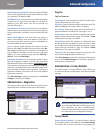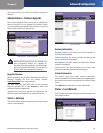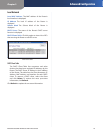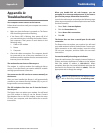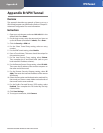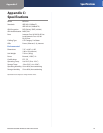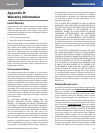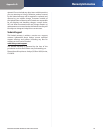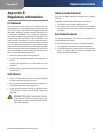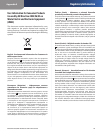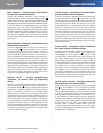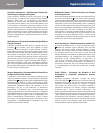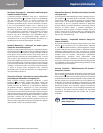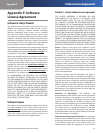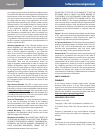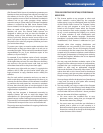
Appendix E
Regulatory Information
25
EtherFast Cable/DSL VPN Router with 4-Port Switch
Appendix E:
Regulatory Information
FCC Statement
This product has been tested and complies with the
specifications for a Class B digital device, pursuant to Part
15 of the FCC Rules. These limits are designed to provide
reasonable protection against harmful interference in
a residential installation. This equipment generates,
uses, and can radiate radio frequency energy and, if not
installed and used according to the instructions, may
cause harmful interference to radio communications.
However, there is no guarantee that interference will not
occur in a particular installation. If this equipment does
cause harmful interference to radio or television reception,
which is found by turning the equipment off and on, the
user is encouraged to try to correct the interference by
one or more of the following measures:
Reorient or relocate the receiving antenna •
Increase the separation between the equipment or •
devices
Connect the equipment to an outlet other than the •
receiver’s
Consult a dealer or an experienced radio/TV technician •
for assistance
Safety Notices
Caution: To reduce the risk of fire, use only No.26 AWG •
or larger telecommunication line cord.
Do not use this product near water, for example, in a •
wet basement or near a swimming pool.
Avoid using this product during an electrical storm. •
There may be a remote risk of electric shock from
lightning.
WARNING: This product contains lead, known
to the State of California to cause cancer, and
birth defects or other reproductive harm. Wash
hands after handling.
Industry Canada Statement
This Class B digital apparatus complies with Canadian
ICES-003.
Operation is subject to the following two conditions:
This device may not cause interference and1.
This device must accept any interference, including 2.
interference that may cause undesired operation of
the device.
Avis d’Industrie Canada
Cet appareil numérique de la classe B est conforme à la
norme NMB-003 du Canada.
Le fonctionnement est soumis aux conditions suivantes :
Ce périphérique ne doit pas causer d’interférences; 1.
Ce périphérique doit accepter toutes les interférences 2.
reçues, y compris celles qui risquent d’entraîner un
fonctionnement indésirable.



